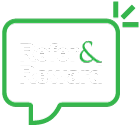- Home
- Resource Center
- Education
- C&N Library
- Unemployment & Your Finances: 4 Things to Do Now
Unemployment & Your Finances: 4 Things to Do Now
- Category:
- Money Management
- Date:
- 07/06/20
Few life events are more stressful than losing your job. The current state of the economy has forced some businesses to cut expenses and lay off their employees. If you or someone you know is facing unemployment, here are 4 things you can do right away to take control of the situation and position your finances to come out stronger on the other side.
1. Assess your situation
First, understanding your emergency savings and monthly income vs. expenses will help you identify any pitfalls you may be facing. Start by answering these questions:
- Do you expect to be without a paycheck? If so, for how long?
- If you haven’t filed for unemployment benefits, apply right away. If you already filed, how much do expect to receive and when do you expect that income start flowing in?
- Assess health insurance situation – If you obtained your health insurance coverage through your employer, this could be a very serious issue for you. You can continue your coverage through COBRA, but the cost is often significantly higher. You will need to ascertain how coverage will continue during unemployment. Even if you’re young and/or healthy, your health is never guaranteed, and the financial cost to a health event while you’re uninsured can be catastrophic. Explore all options including the Affordable Care Act marketplace, but do not go uninsured.
- What are your monthly expenses? Can any be reduced, eliminated, or deferred?
- Do you have an emergency savings fund? If so, for how many months could it cover your expenses?
2. Cover any shortfall
Next, if your expenses outweigh your emergency savings and income, determine how to cover the shortfall. You might consider:
- Dipping into your emergency fund – that’s why it’s there! You can use it to supplement any income you may receive or fully cover your monthly expenses as long as possible.
- Sell things you no longer need – now more than ever, personal and recreational items are in high demand as people look for new ways to stay occupied while social distancing. RV’s, campers and ATVs are hot commodities, along with hot tubs and bicycles. You might be able to sell them for more than you’d expect.
- Leverage the equity in your home – if you own your home and have built up some equity, you could consider a home equity loan or line of credit. Although taking on more debt when your finances are unstable could be risky, your local community bank can help you decide if this is a smart option for you.
- Liquidate some non-retirement savings (i.e. stocks, bonds) – the markets are volatile and, depending on your portfolio mix, you may take a loss if you choose to sell off investments. This would be another risky move worth a discussion with your advisor.
- Tap into your retirement savings – as a last-resort, if you have retirement savings in a 401(k) or Individual Retirement Account (IRA), that money is available to you. Again, your advisor can help you understand the long-term impact it could have and if it’s worth the risk. TIP: find out if your bank will waive early withdrawal penalties on IRA accounts. Many are doing this in light of COVID-19.
3. Make a decision about your 401(k)
This is an important step that many people delay or completely forget. When leaving an employer, you have several options for handling your 401(k) retirement plan. There are advantages and disadvantages to each and, over the years, we’ve found the best financial decisions are the ones that consider all available options:
- Leave the money in your former employer’s plan, if permitted
- Roll the assets over to your new employer’s plan, if one is available and rollovers are permitted
- Roll the assets into an Individual Retirement Account (IRA)
- Cash out the account value (confer with your accountant about tax ramifications).
NOTE: the CARES Act waives the 10% early withdrawal penalties on 401(k) plans, giving some account owners up to three years to replace what they took out. Remember, this new legislation may not cover loans unrelated to the COVID-19 crisis.
4. Talk with your advisor
At a time like this, consulting with an experienced, trusted professional can be especially helpful. Even if you think you have the answers, we encourage you to connect with your C&N financial advisor who can help you make the best decisions to help you get through this difficult time. We’re here for you.
Some products are not FDIC insured or guaranteed, not a deposit or other obligation of the bank, not guaranteed by the bank and are subject to investment risk, including the possible loss of the principal amount invested and are not insured by any other federal government agency.

